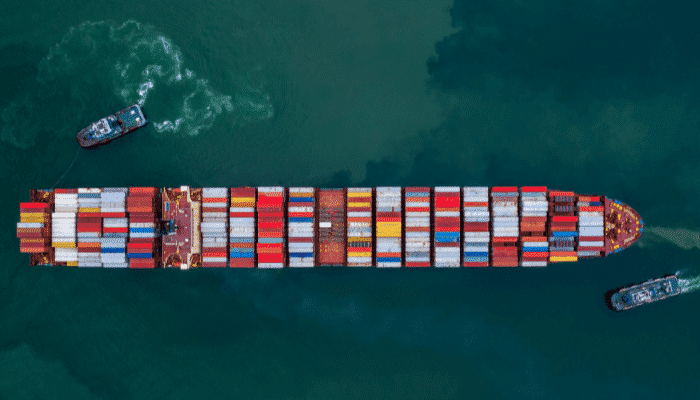
Red Sea crisis pushes container shipping spot rates to highest level in over a year
LONDON : Attacks on ships in the Red Sea continue to push ocean freight rates higher, triggering warnings of inflation and delayed goods.
To avoid strikes by Iran-backed Houthi militants based in Yemen, carriers have already diverted more than $200 billion in trade over the past several weeks away from the crucial Middle East trade route, which, along with the Suez Canal, connects the Mediterranean Sea to the Indian Ocean.
This has created a multiple-front storm for global trade, according to logistics managers: Freight rates increasing daily, additional surcharges, longer shipping times, and the threat that spring and summer products will be late due to vessels arriving late in China as they travel the long way around South Africa’s Cape of Good Hope.
Drewry has published its keenly awaited first box spot rate details of the year, with the Red Sea shipping crisis sending rates rocketing.
Drewry’s global composite index was up by more than $1,000 over the past fortnight to $2,669.91 per feu while rates from Shanghai to Rotterdam have more than doubled, up 115%, to $3,577 per feu.
The Red Sea crisis saw the Shanghai Containerized Freight Index (SCFI), another key spot rate data point, rise by 40% last week – only the fourth time since 2009 that spot freight rates jumped by more than 40% in a single week.
Analysts at Linerlytica, an Asia-based consultancy, expect elevated rates to hold through January and February as capacity will remain tight in the next six weeks.
“12% of global containership capacity is currently diverted to the Cape route and their numbers will continue to rise,” Linerlytica suggested in a report published earlier this week.
“Carriers may also be benefitting from firming demand, with Chinese exports growing for the first time in six months in November,” rival consultancy Alphaliner pointed out in its most recent weekly report.

